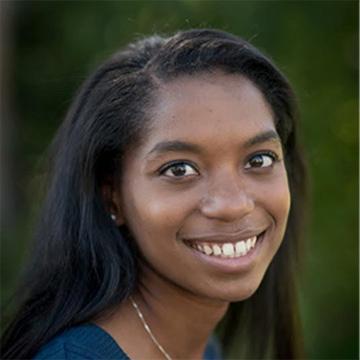Shelby Crespi '16

Name: Shelby Crespi
Year: Senior (Class of 2016)
Major(s)/Minor(s): Public Health Science Major and Biology
Minor
What has inspired you to study public health?
I've always been interested in health and disease. This interest led to me to the Public Health Science major early on, and I have learned so much about all the different things that impact a person. I wanted to pursue something where science and humanity come together, and Public Health Science is the only major that teaches you about the person from their genes to the way that their environment and circumstances bear on their health as well as the interaction between all of these factors. More importantly, public health provides me with a framework for how we can change health outcomes for the better. With certain actions we can buffer the impacts of poverty on health, boost the economy by sending girls to school, and enhance the quality of life for those who live with illnesses. Public health is one of very few things that is applicable and beneficial in every setting.
Can you share a little about your experience with the Global Social Benefit Fellowship and what you did during the fellowship?
For GSBF, I was lucky enough to have two placements instead of one. I worked with BanaPads in Uganda which makes affordable, ecofriendly, sanitary pads for menstruating girls and women. They train and employ local women, called Champions, to sell the pads, and they earn a small profit from their sales. The primary objective is to keep girls in school who would otherwise have high rates of absenteeism and eventually drop out due to lack of healthy menstruation management methods. The pads, in addition, improve the health of women who were experiencing infections and other adverse health outcomes and also opens up the conversation about reproductive health. At BanaPads, I was working with Paris Coyne, a Cinema Studies major, to help capture footage to create promotional videos for BanaPads with a public health spin. These videos with help BanaPads gain funding as well as help to spread education about the issue.
In Tanzania, I worked with Solar Sister who also has presence in Uganda, and Nigeria. They train and employ local women to sell and distribute solar lanterns and clean cookstoves in rural areas. They have effectively tackled the issue of last mile distribution of light in an energy poor country. The women who sell the lanterns also turn a profit. In addition, these lanterns replace kerosene which is expensive, provides poor light quality, harmful to the environment, has adverse health effects due to fumes, and is dangerousoften causing house fires or bed nets to go up in flames. There, Paris and I worked on capturing footage for profiles of their customers and how their lives have changed since switching to solar power. Our videos will serve the purpose of attracting investors and showcasing the impact that Solar Sister is making. Throughout the process, we met truly inspiring people who work for these enterprises, especially the Champions and Solar Sisters. Being able to witness in person the impact that these products are making on people's lives is also incredibly moving.
What lessons did you gain from your experience?
In the field, I learned how to be resourceful and quick troubleshooting particularly in a low-resource setting. It also taught me that importance of crosscultural communication and how though this is a barrier, it also shows the willingness that people have to get to know you and help you. I can't even recall the number of times that we failed miserably at trying to communicate, but I can tell you that almost every one of these times ended in laughs and sometimes even making a new friend. I will always carry the friendliness and lightheartedness of East Africa with me.
How do you hope to apply these lessons in the future and what are some of your goals after SCU?
The lessons that I learned in the field, I strive to integrate into my everyday life especially being really friendly and keeping the situation lighthearted. Even when things are tough or seem impossible, there is always a solution and there are always people around you working toward the same goal. I plan to immediately pursue and Master's degree in Public Health to better prepare me for a career in public health. Where I go after that is a mystery. I could be right here in the Bay Area or on the other side of the world practicing public health of course!